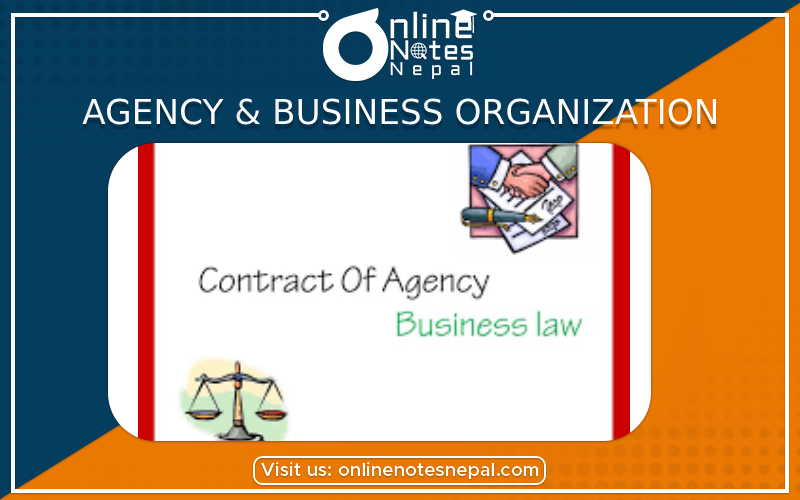Published by: Anu Poudeli
Published date: 17 Jul 2023

The legal and institutional frameworks within which businesses operate and conduct their activities are referred to as agency and business organization.
Here's some information on agencies and commercial organizations:
1.Agency Relationships:
An agency relationship exists in business when one party (the principal) permits another party (the agent) to act on its behalf. The agent is authorized to make binding decisions and engage into contracts on the principal's behalf. This connection is governed by agency law, which describes both parties' rights, duties, and responsibilities.
2.Business Organization Types:
There are various types of business organizations, each with its own legal structure and characteristics. The most popular types are:
a. Sole Proprietorship: A sole proprietorship is a business that is owned and operated by a single person. The owner bears all responsibilities and earnings earned by the business.
b. Partnership: A partnership is created when two or more people agree to work together to run a business. Based on a partnership agreement, they share profits, losses, and management responsibilities.
c. Limited Liability Company (LLC): An LLC is a versatile corporate structure that combines aspects of a corporation and a partnership. It offers its members (owners) limited liability protection while offering freedom in management and taxation.
d. Corporation: A corporation is a legal body that is owned by shareholders. It provides its owners with limited liability protection and a more sophisticated legal structure.
3.Corporate Governance:
Corporate governance refers to the set of rules, policies, and processes that guide and control a firm. It includes the interactions of numerous stakeholders, such as shareholders, management, and the board of directors. Transparency, accountability, and ethical decision-making are all ensured by good corporate governance.
4.Legal and Regulatory Considerations:
Choosing the correct company organization necessitates careful consideration of legal and regulatory concerns. These include liability protection, tax ramifications, ease of creation and operation, finance choices, governance needs, and the business's long-term ambitions. Seeking legal and professional counsel is critical when making business organization decisions.
5.Franchising:
Franchising is a business model in which a franchisor licenses trademarks, business processes, and intellectual property to a franchisee. The franchisee conducts a business under the existing brand and receives support, marketing, and a proven business plan from the franchisor.
6.Mergers and Acquisitions :
Mergers and acquisitions (M&A) are transactions in which the ownership of two or more companies is consolidated or transferred. M&A transactions can include the merger of two or more firms to form a larger organization (merger) or the acquisition of one company by another (acquisition). These deals frequently include significant legal, financial, and operational issues.
Remember that exact rules and regulations governing agency and business formation can differ depending on jurisdiction. It is always advisable to seek the advice of legal and financial professionals.